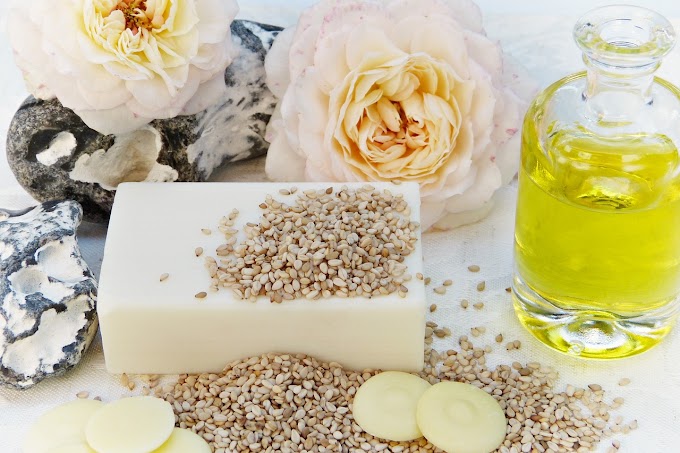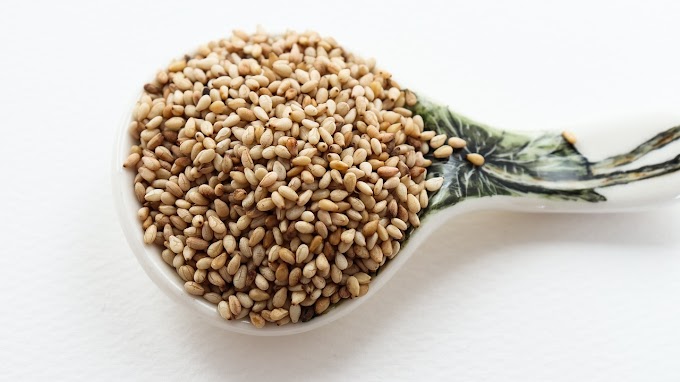Introduction
The Ritualistic Essence of AbhyangaBeyond its therapeutic effects, Abhyanga embodies a ritualistic essence, marking a sacred communion between the practitioner and the recipient. Rooted in the Ayurvedic philosophy, this massage transcends physical touch, aiming to restore balance not only within the body's doshas but also in the subtle energies that permeate the individual. The rhythmic strokes and intentional movements become a dance, choreographed to harmonize the energy flow and bring about a sense of profound well-being.
Exploring Doshas and Personalization
Exploring Doshas and Personalization
Central to the effectiveness of Abhyanga is the understanding of doshas—Vata, Pitta, and Kapha—and their influence on an individual's constitution. Ayurvedic practitioners tailor the massage experience, selecting oils and techniques that resonate with the unique doshic balance of each person. This personalized approach ensures that Abhyanga becomes a bespoke therapy, addressing specific imbalances and promoting a more targeted healing response.
Beyond the Physical: Mental and Emotional Benefits
Beyond the Physical: Mental and Emotional Benefits
While Abhyanga is renowned for its physical benefits, its impact extends beyond the tangible realm. The calming strokes and nurturing touch have profound effects on the mind and emotions. By alleviating physical tension, Abhyanga contributes to mental relaxation, reducing anxiety and promoting mental clarity. The holistic nature of this practice fosters a deep sense of connection between the physical, mental, and emotional aspects of well-being.
Embarking on a Journey of Self-Care
Embarking on a Journey of Self-Care
In the modern age, where self-care is increasingly recognized as a crucial aspect of overall health, Abhyanga stands out as a powerful self-care ritual. Beyond the therapeutic sessions with a trained practitioner, individuals are encouraged to embrace the art of self-massage, incorporating Abhyanga into their daily routines. This self-loving practice extends the benefits between professional sessions and empowers individuals to take an active role in nurturing their well-being.
The Synergy of Herbal Infusions
The Synergy of Herbal Infusions
Using herbal-infused oils in Abhyanga introduces an additional layer of therapeutic synergy. Each herb carries its own unique properties, contributing to the overall healing experience. From the adaptogenic qualities of Ashwagandha to the clarifying effects of Brahmi, herbal infusions enhance the massage's ability to address specific health concerns, making Abhyanga a dynamic and adaptable practice.
Embracing Abhyanga as a Lifestyle
Choice To fully embrace the essence of Abhyanga, individuals are encouraged to view it not merely as a sporadic indulgence but as a lifestyle choice. Regular sessions, whether administered by a skilled practitioner or as part of one's self-care routine, create a cumulative effect. Abhyanga becomes a cornerstone of a holistic lifestyle, promoting balance, resilience, and a sustained sense of vitality.


Abhyanga: The Art of Ayurvedic Massage
The Historical Roots of Abhyanga Abhyanga transcends the realm of mere massage; it is a holistic practice deeply rooted in the ancient healing system of Ayurveda, with a history spanning over 5,000 years. The term "Abhyanga" originates from the Sanskrit words "Abhi," meaning "into," and "Anga," meaning "limb" or "body part." Developed to promote overall health and well-being by balancing the body's doshas—Vata, Pitta, and Kapha—Abhyanga has been passed down through generations as a venerable tradition that seeks to harmonize the body, mind, and spirit.
Varieties of Abhyanga Oils
At the core of Abhyanga practice are the oils employed during the massage. These oils are meticulously chosen based on an individual's dosha and specific needs. Commonly used oils include:
Sesame Oil (Tila Taila): Ideal for Vata types, sesame oil provides warmth and nourishment, soothing the nervous system and alleviating dryness in the skin and joints.
Coconut Oil (Sarshapa Taila): Suited for Pitta types, coconut oil has a cooling effect, perfect for soothing inflammation, heat, and skin irritations.
Mustard Oil (Brungaraja Taila): With its warming properties, this potent oil is often selected for Kapha types, stimulating and invigorating the lymphatic system.
Herbal Oils: Tailored to specific health conditions, herbal-infused oils such as Brahmi oil for mental clarity or Ashwagandha oil for stress relief may also be employed.
Sesame Oil (Tila Taila): Ideal for Vata types, sesame oil provides warmth and nourishment, soothing the nervous system and alleviating dryness in the skin and joints.
Coconut Oil (Sarshapa Taila): Suited for Pitta types, coconut oil has a cooling effect, perfect for soothing inflammation, heat, and skin irritations.
Mustard Oil (Brungaraja Taila): With its warming properties, this potent oil is often selected for Kapha types, stimulating and invigorating the lymphatic system.
Herbal Oils: Tailored to specific health conditions, herbal-infused oils such as Brahmi oil for mental clarity or Ashwagandha oil for stress relief may also be employed.
Benefits of Abhyanga
Abhyanga offers a diverse range of benefits, making it a versatile treatment for various conditions:
Stress Reduction: The rhythmic massage techniques of Abhyanga relax the nervous system, reducing stress and promoting emotional well-being.
Improved Circulation: Gentle yet firm strokes enhance blood circulation, aiding in detoxification and tissue rejuvenation.
Joint Pain Relief: Particularly effective for individuals dealing with joint pain, arthritis, or muscle stiffness.
Enhanced Sleep: Abhyanga soothes the mind, facilitating peaceful sleep.
Radiant Skin: Regular Abhyanga nourishes and moisturizes the skin, promoting a radiant and youthful appearance.
Stress Reduction: The rhythmic massage techniques of Abhyanga relax the nervous system, reducing stress and promoting emotional well-being.
Improved Circulation: Gentle yet firm strokes enhance blood circulation, aiding in detoxification and tissue rejuvenation.
Joint Pain Relief: Particularly effective for individuals dealing with joint pain, arthritis, or muscle stiffness.
Enhanced Sleep: Abhyanga soothes the mind, facilitating peaceful sleep.
Radiant Skin: Regular Abhyanga nourishes and moisturizes the skin, promoting a radiant and youthful appearance.
Finding a Qualified Ayurvedic Massage
Therapist When seeking the benefits of Abhyanga, it is crucial to choose a qualified Ayurvedic massage therapist. Consider the following tips:
Qualifications: Ensure the therapist has proper training and certification in Ayurvedic massage.
Experience: Look for practitioners with experience in addressing your specific health concerns.
Referrals: Seek recommendations from friends, family, or online reviews to find a trusted therapist.
Consultation: Before the massage, engage in a discussion to communicate your needs and any health conditions.

Tips for Maximizing Your Abhyanga Massage To optimize the benefits of your Abhyanga massage, consider the following tips:
Experience: Look for practitioners with experience in addressing your specific health concerns.
Referrals: Seek recommendations from friends, family, or online reviews to find a trusted therapist.
Consultation: Before the massage, engage in a discussion to communicate your needs and any health conditions.

Expectations During an Abhyanga Massage
An Abhyanga massage typically takes place in a warm, tranquil environment. You will disrobe and lie on a comfortable massage table. The therapist will use warm, dosha-specific oils and employ a series of gentle, flowing strokes designed to induce relaxation and balance. The massage usually encompasses the entire body, including the scalp and face.Tips for Maximizing Your Abhyanga Massage To optimize the benefits of your Abhyanga massage, consider the following tips:
Arrive Relaxed: Approach the experience with a calm mind to enhance the therapeutic effects of the massage.
Stay Hydrated: Drink plenty of water after the massage to aid the detoxification process.
Rest Afterwards: Allow yourself time to rest and integrate the experience into your body and mind.
Regular Sessions: Incorporate Abhyanga into your regular self-care routine for long-lasting benefits.
Stay Hydrated: Drink plenty of water after the massage to aid the detoxification process.
Rest Afterwards: Allow yourself time to rest and integrate the experience into your body and mind.
Regular Sessions: Incorporate Abhyanga into your regular self-care routine for long-lasting benefits.
Conclusion
Integrating Abhyanga into your life can be a transformative experience. With its rich history, tailored oils, and myriad benefits, this ancient practice offers a holistic approach to health and well-being. By selecting a qualified therapist and understanding what to expect, you can embark on a journey to rejuvenate your body, calm your mind, and nourish your spirit through the healing art of Ayurvedic massage—Abhyanga.
How does Abhyanga contribute to stress reduction?
FAQ's
What is Abhyanga, and how does it differ from regular massage? Abhyanga is an ancient Ayurvedic massage technique that goes beyond mere physical massage. It incorporates ritualistic and personalized elements, focusing on balancing the body's doshas—Vata, Pitta, and Kapha. Unlike a regular massage, Abhyanga considers an individual's unique constitution, utilizing dosha-specific oils and techniques for a holistic healing experience.How does Abhyanga contribute to stress reduction?
The rhythmic and intentional strokes of Abhyanga work to relax the nervous system, reducing stress and promoting emotional well-being. The massage's holistic approach not only addresses physical tension but also contributes to mental relaxation, reducing anxiety and fostering mental clarity.
What are doshas, and how are they related to Abhyanga?
What are doshas, and how are they related to Abhyanga?
Doshas in Ayurveda represents the fundamental energies that govern the body—Vata, Pitta, and Kapha. Abhyanga considers an individual's doshic balance to tailor the massage experience. Specific oils and techniques are chosen based on the dominant dosha, ensuring a personalized and effective therapeutic response.
Can I practice Abhyanga at home, and how often should I do it?
Can I practice Abhyanga at home, and how often should I do it?
Yes, Abhyanga can be practiced at home as a form of self-care. It is recommended to incorporate self-massage into your daily routine, using dosha-specific oils. Regularity is key, and even a few minutes of self-Abhyanga can contribute to long-term benefits. However, professional sessions with a trained therapist are also valuable for a more comprehensive experience.
What are the benefits of using herbal-infused oils in Abhyanga? Herbal-infused oils in Abhyanga bring additional therapeutic benefits. Each herb carries unique properties that enhance the overall healing experience. For example, Ashwagandha may contribute to stress relief, while Brahmi promotes mental clarity. The choice of herbal infusions allows Abhyanga to be dynamic and adaptable to specific health concerns.
How do I find a qualified Ayurvedic massage therapist?
What are the benefits of using herbal-infused oils in Abhyanga? Herbal-infused oils in Abhyanga bring additional therapeutic benefits. Each herb carries unique properties that enhance the overall healing experience. For example, Ashwagandha may contribute to stress relief, while Brahmi promotes mental clarity. The choice of herbal infusions allows Abhyanga to be dynamic and adaptable to specific health concerns.
How do I find a qualified Ayurvedic massage therapist?
Look for therapists with proper training and certification in Ayurvedic massage. Seek recommendations from friends, family, or online reviews. Before the massage, have a consultation with the therapist to discuss your needs and any health conditions, ensuring a personalized and safe experience.
Is Abhyanga suitable for specific health conditions, such as joint pain or skin issues?
Is Abhyanga suitable for specific health conditions, such as joint pain or skin issues?
Yes, Abhyanga is versatile and can be adapted to address various health conditions. It is particularly effective for joint pain, arthritis, muscle stiffness, and skin issues. Dosha-specific oils and targeted techniques can be employed to tailor the massage to specific concerns, providing relief and promoting overall well-being.
What can I expect during an Abhyanga massage session?
What can I expect during an Abhyanga massage session?
An Abhyanga session typically takes place in a warm, tranquil environment. You will disrobe and lie on a comfortable massage table. The therapist will use warm, dosha-specific oils and employ gentle, flowing strokes designed to induce relaxation and balance. The massage usually covers the entire body, including the scalp and face.
How does Abhyanga contribute to glowing skin?
How does Abhyanga contribute to glowing skin?
Regular Abhyanga nourishes and moisturizes the skin, promoting a healthy and radiant complexion. The use of specific oils tailored to an individual's dosha helps address dryness, inflammation, and other skin concerns, contributing to a youthful appearance.
Is Abhyanga only for physical well-being, or does it have mental and emotional benefits?
Is Abhyanga only for physical well-being, or does it have mental and emotional benefits?
Abhyanga extends beyond physical well-being, encompassing mental and emotional benefits. By alleviating physical tension, the massage contributes to mental relaxation, reducing stress and promoting emotional balance. The holistic nature of Abhyanga fosters a deep sense of connection between the physical, mental, and emotional aspects of well-being.







